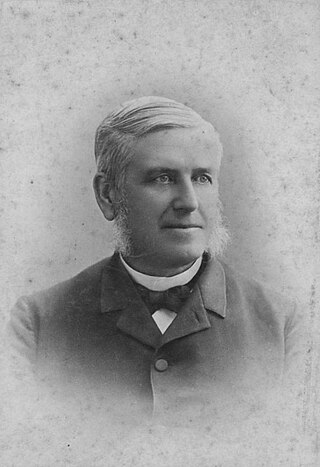Gibberish, also called jibber-jabber or gobbledygook, is speech that is nonsense. It may include speech sounds that are not actual words, pseudowords, or language games and specialized jargon that seems nonsensical to outsiders.

The Sermon on the Mount is a collection of sayings attributed to Jesus of Nazareth found in the Gospel of Matthew that emphasizes his moral teachings. It is the first of five discourses in the Gospel and has been one of the most widely quoted sections of the Gospels.

Analytic philosophy is a branch and tradition of philosophy using analysis, popular in the Western world and particularly the Anglosphere, which began around the turn of the 20th century in the contemporary era in the United Kingdom, United States, Canada, Australia, New Zealand, and Scandinavia, and continues today. Analytic philosophy is often contrasted with continental philosophy, coined as a catch-all term for other methods prominent in Europe.
This article contains information about the literary events and publications of 1883.
Loaded language is rhetoric used to influence an audience by using words and phrases with strong connotations. This type of language is very often made vague to more effectively invoke an emotional response and/or exploit stereotypes. Loaded words and phrases have significant emotional implications and involve strongly positive or negative reactions beyond their literal meaning.
Emotivism is a meta-ethical view that claims that ethical sentences do not express propositions but emotional attitudes. Hence, it is colloquially known as the hurrah/boo theory. Influenced by the growth of analytic philosophy and logical positivism in the 20th century, the theory was stated vividly by A. J. Ayer in his 1936 book Language, Truth and Logic, but its development owes more to C. L. Stevenson.

Charles Margrave Taylor is a Canadian philosopher from Montreal, Quebec, and professor emeritus at McGill University best known for his contributions to political philosophy, the philosophy of social science, the history of philosophy, and intellectual history. His work has earned him the Kyoto Prize, the Templeton Prize, the Berggruen Prize for Philosophy, and the John W. Kluge Prize.

Xenoglossy, also written xenoglossia and sometimes also known as xenolalia, is the supposedly paranormal phenomenon in which a person is allegedly able to speak, write or understand a foreign language that they could not have acquired by natural means. The term derives from the Ancient Greek xenos (ξένος), "foreigner" and glōssa (γλῶσσα), "tongue" or "language". The term xenoglossy was first used by French parapsychologist Charles Richet in 1905. Claims of xenoglossy are found in the New Testament, and contemporary claims have been made by parapsychologists and reincarnation researchers such as Ian Stevenson. Doubts have been expressed that xenoglossy is an actual phenomenon, and there is no scientifically admissible evidence supporting any of the alleged instances of xenoglossy.

Charles Leslie Stevenson was an American analytic philosopher best known for his work in ethics and aesthetics.

The Shorter Oxford English Dictionary (SOED) is an English language dictionary published by the Oxford University Press. The SOED is a two-volume abridgement of the twenty-volume Oxford English Dictionary (OED).
A persuasive definition is a form of stipulative definition which purports to describe the true or commonly accepted meaning of a term, while in reality stipulating an uncommon or altered use, usually to support an argument for some view, or to create or alter rights, duties or crimes. The terms thus defined will often involve emotionally charged but imprecise notions, such as "freedom", "terrorism", "democracy", etc. In argumentation the use of a persuasive definition is sometimes called definist fallacy.

The olecranon, is a large, thick, curved bony eminence of the ulna, a long bone in the forearm that projects behind the elbow. It forms the most pointed portion of the elbow and is opposite to the cubital fossa or elbow pit. The olecranon serves as a lever for the extensor muscles that straighten the elbow joint.
Samuel D. Guttenplan is a professor in philosophy at Birkbeck, University of London. Guttenplan earned his PhD from the University of Oxford with a dissertation directed by John McDowell. He has interests in the philosophies of mind, language, philosophical logic and ethics. His current work centres on the origins of human conceptual thought, and he is contracted to produce The Roots of Categorization for Oxford University Press in 2009–10.
Sir Ralph Clarmont Skrine Stevenson, GCMG, MLC, CP was a British diplomat.

"And Her Tears Flowed Like Wine" is a popular song and jazz standard by Stan Kenton first released in 1944.

Taha Abderrahmane, is a Moroccan philosopher, and one of the leading philosophers and thinkers in the Arab-Islamic world. His work centers on logic, philosophy of language and philosophy of morality and contractarian ethics. He believes in multiple modernities and seeks to establish an ethical and humanitarian modernity based on the values and principles of Islam and the Arab tradition.

Charles McEwen Hyde was a Congregationalist missionary who arrived in Hawaii in 1877. He was instrumental in establishing and supporting schools to educate and train the Hawaiian population of the time. Hyde mentored native Hawaiians who wanted to enter the Christian ministry, and he helped provide smallpox vaccinations for the population. He was a descendant of Scottish Covenanters, and one of the original five trustees of Kamehameha Schools. Private correspondence about Father Damien, penned by Hyde and published without his permission, sparked a heated public rebuke from Robert Louis Stevenson who expressed his belief that sainthood lay ahead for Damien.
Roger Fletcher Gibson Jr. was an American philosopher specializing in epistemology and the philosophy of language. He was best known as a leading exponent of the philosophy of W. V. Quine.

The 1886 Nevada gubernatorial election was held on November 2, 1886.











